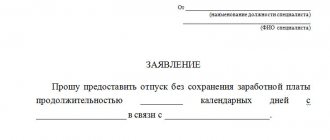Legislation regarding the death of a borrower
The law quite clearly regulates what happens to financial obligations upon the death of the borrower: this is stated in Articles 1110, 1112, 1175 of the Civil Code of the Russian Federation. According to these articles, credit obligations are included in the inheritance mass and are considered the same object of inheritance as assets. By inheriting property, a person also has to pay off the debts of a relative. The exception is obligations that are directly related to the personality of the deceased: for example, the payment of child support (in this case we are talking about obligations, and not about possible debts). Article 1175 also states that inheritance occurs jointly, that is, with regard to financial burdens, all heirs have equal rights. Liability also depends on how much of the deceased's assets a particular person inherited.
Credit history by inheritance
If the testator has an incomplete credit history, the heirs find out about this, then a fair question arises: are loan debts passed on to the inheritance? There are two options for the development of events:
- 1st - a credit card for current expenses, an unsecured loan for household purposes - in this case, the debt is not inherited;
- 2nd - real estate, shares, bonds, corporate rights, encumbered with a pledge - the debt is paid from the price of the inheritance received.
In what order are the requirements presented?
The opinion that obligations pass to the heirs only after six months from the death of the borrower is erroneous. The loan continues to be valid, and if you do not notify the lender about what happened, penalties and late fees will be accrued in the same way. Any of the actual heirs is obliged to provide the creditor with copies of the death certificate, after which the banking organization can suspend the accrual of interest and penalties. If any have already been accrued since the client's death, they must be cancelled. After this, credit obligations are transferred to the one who accepted the open inheritance, that is, received the appropriate certificate. If there are several such people, the debt is divided among them depending on the value of the share of the inheritance they received. Banks do not take into account the age of the heirs and their awareness of the existence of financial obligations.
Who pays the loan after the death of the borrower
The option in which the need to repay the debt passes to the heirs is not the only one. There are several other situations in which third parties will need to repay the loan.
Co-borrower.
For large purchases (car, apartment), the income of one person is not always enough to obtain a loan, so obligations are taken jointly. In this case, several people also receive rights to the collateral, and if one of them dies, the obligations and property pass to the remaining ones.
Guarantor.
In some cases, loan obligations are provided to the client with the participation of a guarantor - a person who, under unforeseen circumstances, is ready to take responsibility for the loan. If the borrower dies, his debts, including fines and late fees, pass to the guarantor within the limitation period and the amount of the estate. He has the right to claim part of the inheritance to pay off debts if the heirs abandoned the property. If they have entered into the right of inheritance, he can recover compensation from them for expenses by going to court, but only after paying all the funds.
Insurance Company.
Banking organizations prefer to encourage clients to purchase insurance along with signing a loan agreement. This is an optional condition according to the legislation of the Russian Federation, however, if a person agrees to purchase additional insurance, in the event of his death, the remainder of the debt will be paid not by the heir, but by the insurance company. Unfortunately, not every situation is considered an insured event. The company may refuse payment if the client died as a result of extreme sports or participation in hostilities, or concealed a chronic illness when signing the contract. In this case, payments also fall on the shoulders of the heirs.
Let's sum it up
After the death of the borrower, debts on his loans will be paid through insurance, and if there is no insurance, they will be transferred to the heirs. However, recovery is made only from the estate, and not from the personal savings or property of the deceased. The creditor has the right to go to court before accepting the inheritance and foreclose on the inheritance, or wait until the inheritance is entered into and file a separate claim against the persons who entered into the inheritance.
Read: What is a pre-trial claim to a bank and how to draw it up correctly
What to do if you inherit a loan
First of all, try to calm down. Even if you did not know about the loan and were not prepared for such a turn of events, inheriting debt is not a death sentence. You may not have to pay the obligations: if you do not want this, you have the right to refuse the inheritance. If property is important to you and you are not going to refuse inheritance, contact the creditor. Clarify the possibility of restructuring and changing payment terms, refer to the circumstances. The same principle should be followed if the borrower’s creditor was not a banking organization, but a collection agency. Conscientious collectors meet clients halfway in such matters and are more willing than banks to provide individual favorable conditions.
What to do in difficult cases
The situation where the deceased person was burdened with a simple consumer loan is the most common. There are also non-standard cases that raise more questions.
The amount of debt exceeds the value of the inheritance.
If it turns out that the amount of funds that can be obtained from the sale of inherited assets cannot cover the financial obligations of the deceased, separate rules prescribed in Article 1175 of the Civil Code come into play. According to them, the heir is liable for debts only to the extent of the inheritance received. He should not pay more than he received. Often in such situations it is easier to refuse the property, since in any case it will be collected as compensation for the debt - only in case of inheritance you will have to manage this yourself.
Mortgage loan obligations.
An apartment purchased with a mortgage will go to the heirs if all obligations are met and nothing else is specified in the contract. Financial obligations will have to be paid either by them or by the guarantor, if present at the conclusion of the agreement.
Child support arrears.
The obligation to pay alimony in itself relates to the citizen’s personality and is not inherited, but if the person had debts on them, they also pass to the heir after death.
What happens to the loan if the borrower dies
Transfer of debt is permitted in those cases that are expressly specified in the law or in the loan agreement. If the loan recipient passes away, their obligations will never be automatically cancelled. The law provides for the fact that debts for a deceased person must be repaid by his heirs - this situation is called the term “succession of debts” in relation to heirs.
The bank will also be able to obtain insurance and return money from guarantors and co-borrowers if the borrower’s life was insured. But insurance won’t always pay either.
When issuing a loan, the bank relies on the borrower’s integrity and on timely repayment of money on schedule. To protect itself in case of non-repayment, or even worse, in case of death of the borrower, the bank can:
- invite the borrower to take out voluntary insurance in case of death or temporary disability. But the borrower has the right to refuse such insurance;
- issue money under the guarantee of other persons (relatives, friends of the loan recipient);
- require the conclusion of an agreement with the participation of a co-borrower (usually the spouse of the main borrower).
In the case of a mortgage, the bank will definitely attract a co-borrower if spouses take out the loan. They bear equal obligations, since they purchase real estate using mortgage funds into common ownership.
The larger the loan amount, the more you need to find and provide guarantees of its return for the bank. Therefore, when considering an application for a loan in the region of 1 million rubles or more, the client will be offered to take out life and health insurance. This is not always a mandatory requirement when lending, but it occurs in almost 99% of cases.
And to get a mortgage, you almost always need to take out such insurance. If the client refuses to insure himself, the bank has the right to refuse the loan application. Why? Yes, because a mortgage is a loan not for a year, but for many years. And an outwardly healthy person today can become seriously ill, become disabled, or even die within these 10-25 years.
Offering insurance, or as you often hear from bank borrowers - imposing a policy - is a common practice that can be encountered in any bank.
If a person dies without paying off the loan, the bank will not cancel the loan.
If a person dies, then employees of the credit institution will check the availability of insurance and study the contract for the return of funds from the co-borrower and guarantors. If the listed measures do not bring results or they cannot be used, that is, there is no person who will repay the loan, then the option of collecting the debt from the recipients of the inheritance remains.
This is allowed by the norms of the Civil Code of the Russian Federation. Therefore, the clause on transferring the debt to the heirs does not need to be written down in the loan agreement.
If the loan is not in arrears
If there were no delays in the payment schedule before the borrower’s death, the bank will be able to try to return the money:
- at the expense of insurance (if it is available and if the policy renewal is paid correctly);
- from guarantors or co-borrowers who bear additional responsibility for the debts of the loan recipient;
- from the heirs who will accept the property of the deceased.
A person can die, but not repay the loan - no.
Loan obligations do not end after the death of the borrower. The bank has the right to demand repayment of the loan from guarantors, co-borrowers and heirs. If the borrower had life insurance, the bank will be able to try to obtain compensation from the insurance company.
Note that the bank can use several of the listed options at once. For example, if the insurance coverage was not enough to repay the entire loan, then the remainder can be demanded from the heirs. But you cannot receive double compensation on the loan. If the insurer paid the entire loan balance for the deceased, then it is impossible to demand money from the heirs.
If there is a debt
If, on the date of death, the debt was collected from the borrower by court, and the bailiffs initiated proceedings, then the bank will be able to use another special provision of the law.
According to Art. 52 of Law No. 229-FZ, after the death of the debtor, succession in FSSP proceedings is allowed. Essentially, this is the same transfer of debts to the heirs. But all the formalities will be handled not by the collector, but by the bailiff. Read more about this below.
Also, creditors will have an additional chance to return the money if the inheritance is received by a bankrupt citizen. Inherited property must be indicated in the inventory filed with the bankruptcy court.
After the bankruptcy case is initiated, it will be checked what assets the debtor has in order to include them in the bankruptcy estate. After this, the property will be sold, and then the settlement of creditors’ claims will take place.










